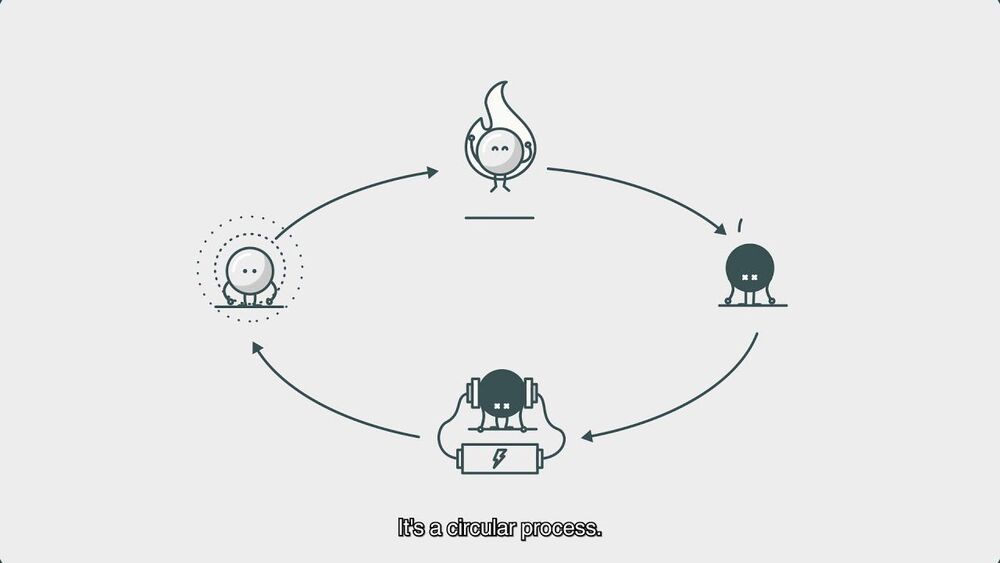It looks like they will be selling green energy as well.
Green hydrogen is taking off around the globe – its supporters say it could play an important role in decarbonisation, but sceptics question its safety and practicality.
It looks like they will be selling green energy as well.
Green hydrogen is taking off around the globe – its supporters say it could play an important role in decarbonisation, but sceptics question its safety and practicality.
A new report by the International Energy Agency has shown that wind and solar capacity will likely exceed coal and gas in less than five years.
Wind and solar capacity will double over the next five years globally and exceed that of both gas and coal, according to a new International Energy Agency (IEA) report.
The Paris-based intergovernmental agency anticipates a 1,123 gigawatt (GW) increase in wind and solar that would mean these power sources overtake gas capacity in 2023 and coal in 2024.
Continue reading “IEA: Wind and solar capacity will overtake both gas and coal globally by 2024” »

On Earth, amethysts can form when gas bubbles in lava cool under the right conditions. In space, a dying star with a mass similar to the Sun is capable of producing a structure on par with the appeal of these beautiful gems.
As stars like the Sun run through their fuel, they cast off their outer layers and the core of the star shrinks. Using NASA’s Chandra X-ray Observatory, astronomers have found a bubble of ultra-hot gas at the center of one of these expiring stars, a planetary nebula in our galaxy called IC 4593. At a distance of about 7,800 light years from Earth, IC 4593 is the most distant planetary nebula yet detected with Chandra.
MIT researchers have developed a new material inspired by camel fur made from two layers that can keep perishable goods cool without needing any power. The two-layer passive cooling system is made of hydrogel and aerogel. Researchers say that it can be used to keep foods or pharmaceutical cool for days without needing electricity.
The material can be seen in the photo above, its top layer is aerogel, and the bottom layer is a hydrogel. Material is inspired by camel fur, which helps keep the animals cool and helps them to conserve water in the scorching desert environment. It seems counterintuitive that a thick coat of fur would help camels to stay cool, but tests have shown that a shaved camel loses 50 percent more moisture than an unshaved one under ideal conditions.
The bottom layer of MIT’s material is a substitute for sweat glands made of hydrogel. This gelatin-like substance is mostly water contained in a sponge-like matrix that allows the water to evaporate easily. The upper aerogel layer plays the part of the fur, keeping out external heat while allowing the vapor to pass through. Hydrogels have been used for cooling applications in the past. Field tests have found that MIT’s material can provide cooling of more than seven degrees Celsius for five times longer than hydrogel alone despite being less than half an inch thick.

A brewery in the Netherlands is making environmental history by using a cycle of renewable iron as fuel for its furnace.
Dive deeper. ➡ Get unlimited access to the weird world of Pop Mech, starting NOW.
Would you like to have this in your home?
They are maximizing natural light for your home. I think this would help anyone’s electricity bill.

Sony wants a bigger piece of the drone market. Today, the Japanese giant unveiled a project called Airpeak, which will “support the creativity of video creators to the fullest extent possible,” according to a cryptic press release. That makes it sound like Sony wants to take on consumer-focused drone makers such as DJI, Parrot and Skydio. Which makes a lot of sense, given Sony’s expertise in the compact and full-frame mirrorless camera markets. If you’re a vlogger or independent filmmaker that already uses Sony gear, you might be tempted by a drone with similar technology. If nothing else, it would make it easier to color correct and combine footage.
In the press release, though, Sony notes how drones have led to “workflow efficiency and energy savings in the industrial sector.” It adds: “Sony has assigned the ‘Airpeak’ brand to reflect its aspiration to contribute to the further evolvement and the creation of the unprecedented value through its imaging and sensing technology as well as 3R technologies (Reality, Real-time and Remote) in the drone area.” So it a consumer or enterprise play? We’re hoping its the former. The company already has Aerosense — a business-focused drone collaboration with ZMP — which specializes in surveying, capturing live events and creating maps from drone imagery.
Startup Emrod is building a system to wirelessly beam power over long distances and plans to test the system with New Zealand’s second largest utility.
All-electric camper vans are still quite rare. Those that are available tend to be designed for camping and commuting locally, not road-tripping indefinitely. But VW fanatic Frank Eusterholz had different ideas. He threw a PlugVan camper module into the e-Crafter cargo van and hit the road … the long road. Eusterholz’s 7,500-km (4,660-mile) journey sent him highway-cruising, switchback-climbing and island-hopping across Europe, from VW van HQ Hannover, Germany to the northernmost tip of Continental Europe. His journey serves as an inspiring early look at the electric RVing possibilities that will only grow with time.
Electric camper vans have been available for years, but a practical version with enough range always seems just a few years off. Next-generation EV campers from the Rivian R1T overland truck to VW’s own ID. Buzz promise more practical ranges and capabilities, but for now e-campers remain limited to small, modest-range minis like the Sussex e-NV200 Camper Car.
In an announcement released last month, Volkswagen painted a different picture of electric camper van touring. It described the story of 54-year-old Frank Eusterholz, a longtime EV driver determined not to let the modest ranges of contemporary electric vans deter him from EV van life. A resident of Samsø, a Danish island that’s been committed to sustainable energy for decades, Eusterholz considered the e-Crafter a natural vehicle choice, and the perfect camper base.
